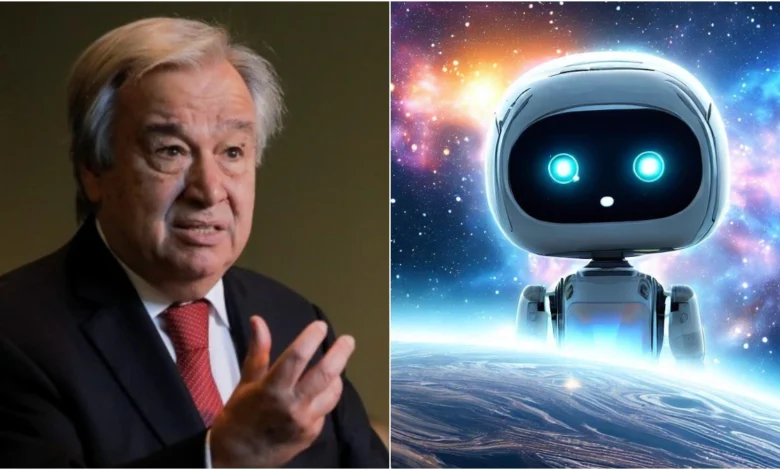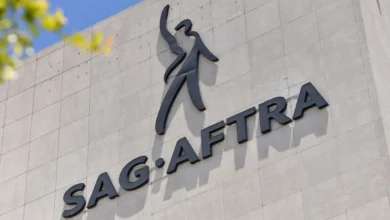UN chief calls for global AI risk management, warns of ‘serious unintended consequences’.

On Wednesday, Secretary-General of the UN António Guterres urged world leaders in politics and business to give global strategy addressing the twin challenges of artificial intelligence as well as climate change top priority.
Guterres cautioned that the swift advancement of artificial intelligence may lead to “serious unintended consequences” during a special speech at the World Economic Forum, which took place in Davos, Switzerland. “I’m glad to be again and to see Davos drawing attention to the worldwide crisis in trust,” Guterres stated in his introductory statement.
Table of Contents
“I think the fundamental cause of this crisis is a paradox that exists in our world. We don’t seem to be able to come together to address the existential threats posed by unchecked artificial intelligence development and a rogue climate crisis, he continued.
The main theme of the yearly WEF meeting is “Rebuilding Trust.” AI is a prominent topic of discussion at this year’s Davos program, which according to WEF embodies a “back to basics” spirit of candid and productive dialogue between business leaders, policymakers, and civil society.
Artificial intelligence proponents assert that humanity can gain from the technology in a number of ways, such as expediting patient diagnosis, assisting in the modelling of climate change, and thwarting cyberattacks.

On Tuesday, Microsoft CEO Satya Nadella expressed his opinion that there should be international cooperation in the field of artificial intelligence, as well as consensus on a set of guidelines and suitable rules for the technology. With billions of dollars invested in OpenAI, the company that created the well-known chatbot ChatGPT, the American tech behemoth is an important force in the competition for improving artificial intelligence.
“There is a greater chance of major unforeseen consequences with each new generative AI interaction. Although the technology has a great deal of promise for sustainable development, Guterres noted that it is highly likely to exacerbate global inequality, as the IMF has simply warned us.
According to an IMF report released on Sunday, the development of AI could have an impact on almost 40% of jobs worldwide. It also issued a warning, stating that most of the time, the possible effects of technology on the global labor market will probably make inequality in general worse. Already, a few strong tech firms are prioritizing profits over social impact, individual privacy, and human rights. Without mentioning any particular companies, Guterres stated, “This is no secret.”
“Here in Davos, leaders, the media, and governments debate these two issues—climate change and artificial intelligence—in great detail. However, we also lack a successful worldwide strategy to address these issues,” he remarked.
The explanation is straightforward: geopolitical divisions keep us from cooperating to find global answers to global problems. It is understandable why individuals are losing face in institutions, financial and economic systems, and governments across the globe.

Big tech companies are heedlessly chasing AI profits, claims the head of the UN.
The head of the UN has warned that there is a need for immediate action to reduce the risks associated with the rapidly expanding artificial intelligence sector because large technology companies are heedlessly pursuing artificial intelligence profits.
At the World Economic Forum’s accomplishing in Davos, UN Secretary General António Guterres unleashed a fierce attack on the multinational technology companies, stating that every advancement in generative AI raised the risk of unexpected consequences. Guterres said that the international community lacked a plan to address either the climate crisis or the risks posed by artificial intelligence.
The head of the UN urged audience members from the tech sector to collaborate with governments in establishing regulations for artificial intelligence during his speech to the WEF at the resort in Switzerland. “This technology holds great promise for sustainable development, but it is likely to exacerbate inequality, according to a recent warning from the International Monetary Fund,” he stated, alluding to a report released by the organization on Monday.
“Recklessly profit-driven tech companies are currently seeking profits at the expense of social impact, individual privacy, and human rights.” Silicon Valley firms maintain that artificial intelligence will generate more employment opportunities than it will eliminate and claim they are putting safeguards in place to stop AI from being used for illegal or other bad intentions.
According to Guterres, much more work has to be done. Governments and international organisations like the UN should be involved in making sure AI is used for the greater good. He stated, “My AI advisory board has already made initial suggestions on governance arrangements for AI that harness the power of this amazing new technology while reducing its risks.”

Governments and tech companies must collaborate immediately to develop risk-management strategies for the current AI development as well as to monitor and mitigate potential future harms. In order for developing economies to take advantage of AI’s enormous potential, we also need to make a concerted effort to expand access to this technology. Rather than widening the digital divide, we must close it. Sam Altman, the CEO of OpenAI, stated at a Davos gathering on Tuesday that the demands of AI in the future would require far more energy than people had anticipated.
The CEO, who was fired from his position as head of ChatGPT developer in November of last year and then hired back a few days later, pointed out that the bright side was that artificial intelligence would advance with more climate-friendly energy sources, especially nuclear fusion or less expensive solar power and storage.
Furthermore, Guterres berated fossil fuel corporations for impeding the fight against climate change. “Another multimillion-dollar effort to kneecap development and keep the gas and oil industries flowing indefinitely has just been launched by the fossil fuel industry,” the man stated.
To be very clear, it is necessary and inevitable that fossil fuels be phased out. No amount of fear mongering or spin will alter that. Hopefully, it won’t arrive too late. To guarantee a fair and just transition to renewable energy, we must move quickly.
In a statement from last year, Guterres charged that fossil fuel companies were following business plans that were at odds with the advancement of humanity. He claimed that “governments, the media, and leaders here in Davos are exhaustively discussing these two issues – climate and AI.” And yet, we too lack a successful worldwide plan for handling this. We seem helpless to stop the dangerous, potentially catastrophic threats posed by unchecked climate chaos and the unchecked development of AI.
Top Related Articles of Author
The IMF predicts that AI will worsen inequality and affect nearly 40% of jobs worldwide.
The SAG AFTRA AI contract raises concerns in the gaming industry.
Microsoft and OpenAI face a copyright infringement lawsuit from The New York Times.
The Gemini era: Google has finally launched best ever AI model.





One Comment